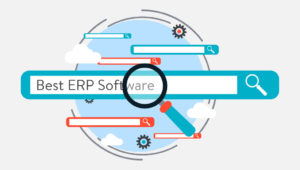In today’s highly competitive market, Customer Relationship Management (CRM) software is indispensable for sales teams aiming to optimize their performance. CRM systems help businesses manage customer interactions, streamline sales processes, and ultimately increase revenue. For sales teams, a robust system is not just a tool—it’s a game-changer.
What is CRM for Sales?
CRM sales refers to using software to manage and enhance the sales process. It helps sales teams to track customer interactions, manage leads, and forecast sales. By integrating all aspects of customer information, sales teams can get a 360-degree view of each client, allowing them to tailor their sales strategies and build stronger relationships.
Benefits of CRM for Sales Teams

- Improved Lead Management
A CRM system enables sales teams to manage leads more effectively. By tracking the entire customer journey—from the first point of contact to the final sale—sales reps can ensure that no opportunity slips through the cracks. this tools automate lead assignment, making it easier for sales managers to assign leads to the right team members, improving the chances of conversion. - Enhanced Customer Insights
With CRM software, sales teams can gather valuable insights into customer behavior and preferences. This data allows for personalized sales strategies, helping reps to engage prospects more effectively. Detailed customer profiles stored in the system allow sales professionals to track communication history, past purchases, and even preferences, giving them an edge in closing deals. - Automated Sales Tasks
Repetitive tasks, such as sending follow-up emails or scheduling meetings, can be automated through for sales. This not only saves time but also reduces human error. Automation ensures that critical tasks are completed on time, enhancing productivity and allowing sales reps to focus on more strategic activities, like building relationships and closing deals. - Better Sales Forecasting
One of the most powerful features of a sales teams is its ability to provide accurate sales forecasting. By analyzing historical data and current trends, tools can predict future sales performance, allowing managers to make informed decisions. This helps in setting realistic sales targets and aligning team efforts to achieve them. - Enhanced Collaboration
A CRM system facilitates better communication and collaboration within the sales team and other departments like marketing and customer service. By having access to the same customer data, everyone in the organization can contribute to creating a seamless customer experience, which ultimately improves customer satisfaction and loyalty.
Choosing the Right CRM for Sales
When selecting a CRM system for your sales crm team, it’s essential to consider the specific needs of your business. Some tailored for small businesses, while others are designed for larger enterprises. Look for features such as automation, reporting, lead scoring, and mobile access, which can significantly boost your team’s productivity.
Conclusion
CRM for sales is a crucial investment that can dramatically enhance the efficiency and effectiveness of your sales team. From improving lead management and customer insights to automating tasks and providing accurate sales forecasting, is a powerful tool that drives success. In the fast-paced world of sales, leveraging a CRM system is the key to staying ahead of the competition and closing more deals.



